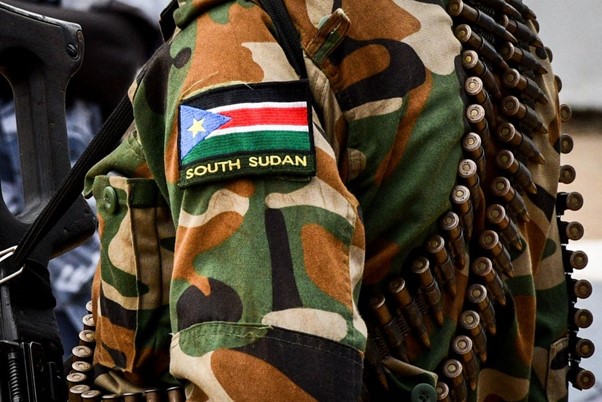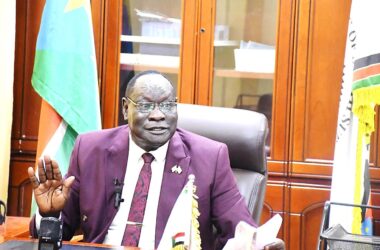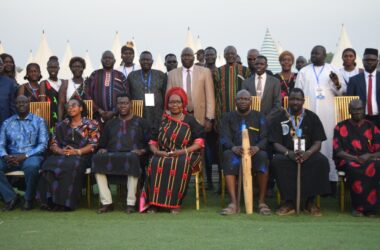By Kei Emmanuel Duku
South Sudan’s primary peace monitor, the Reconstituted Joint Monitoring and Evaluation Commission (RJMEC), has issued a stark warning: The recent unilateral recruitment of troops by the South Sudan People’s Defense Forces (SSPDF) is a direct violation of the 2018 Peace Agreement and is pushing the Permanent Ceasefire to the brink of collapse.
During the presentation of RJMEC’s third-quarter 2025 report, Acting Chairperson Amb. Maj Gen George Aggrey Owinow confirmed that the SSPDF’s announced training of 4,000 troops in Wunaliet, Central Equatoria State, flatly contradicts the terms of the Revitalized Agreement on the Resolution of the Conflict in the Republic of South Sudan (R-ARCSS).
The peace deal’s security cornerstone, Article 2.1.8, explicitly mandates a clear halt to all recruitment and training outside of the officially sanctioned peace process. This critical provision was put in place to freeze the respective military strengths of the signatory parties, preventing any unilateral build-up that could jeopardize the fragile stability.
The body overseeing the ceasefire, the Ceasefire Transitional Security Arrangement Monitoring, Verification and Monitoring (CTSAMVM), has noted a destabilizing surge in hostilities, particularly between the SSPDF and the Sudan People’s Liberation Army in Opposition (SPLA-IO).
According to the report, violence has intensified across several key areas, including Upper Nile, northern Jonglei, and the Equatoria States (Western, Central, and Eastern).
In Upper Nile, fighting between the SSPDF and SPLA-IO, allegedly supported by the local White Army, has intensified in counties like Maiwut, Nasir, Ulang, and Longochuk.
Further south, severe violations have been recorded in Western and Central Equatoria, involving the SSPDF battling a loose alliance of SPLA-IO and the National Salvation Front (NAS).
CTSAMVM, whose main job is to ensure adherence to peace commitments, reported an alarming escalation of violence. In August 2025, about 29% of its field reports cited violations, a figure that alarmingly leapt to 50% in September a relative increase of nearly 73%.
This high volume of fighting has created a major investigative backlog, straining CTSAMVM’s capacity and preventing its high-level forums—the Technical Committee (CTC) and the Board—from convening regularly to process the flood of violation reports.
The monitoring body noted that the repercussions of these clashes are clear: no progress has been made in unifying and deploying the Necessary Unified Forces (NUF).
The minimal advances achieved between August 2022 and January 2023 have been completely jeopardized by the ongoing hostilities. This has undermined the capacity of the Revitalized Transitional Government of National Unity (RTGoNU) to complete the deployment of the Phase One graduated forces and has made no visible headway on the crucial Phase Two unification, despite repeated public assurances.
CTSAMVM is urgently calling for investigations into several high-profile incidents that threaten to unravel the peace deal:



